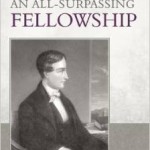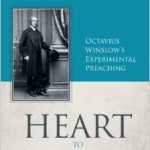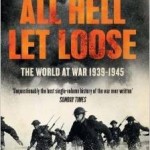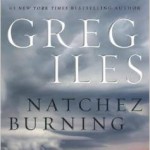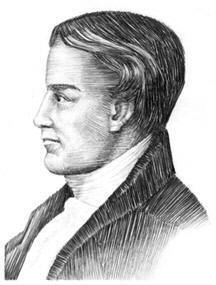Among the many words one can use to describe D.A. Carson “prolific” is quite a good one.
This servant of God has published standard commentaries on Matthew and John, a perennial bestseller in the seminaries, a slim volume every pastor should own, and as good a book on prayer as you will find.
A MAGISTERIAL SERIES IN THE MAKING
What some people don’t know however is that Carson is in the midst of editing a marvelous series published by IVP titled New Studies in Biblical Theology. The series’ aim is to
. . . address key issues in the discipline of biblical theology. Contributions to the series focus on one or more of three areas: (1) the nature and status of biblical theology, including its relations with other disciplines (e.g. historical theology, exegesis, systematic theology, historical criticism, narrative theology); (2) the articulation and exposition of the structure of thought of a particular biblical writer or corpus; and (3) the delineation of a biblical theme across all or part of the biblical corpora.
Above all, these monographs are creative attempts to help thinking Christians understand their Bibles better. The series aims simultaneously to instruct and to edify, to interact with the current literature, and to point the way ahead.
If you’ve got the ability to do so, buy the whole set of 26 (more are on the way) over at WTS Books and get reading. If not, here are few individual titles well worth your money and study.1
A PLACE TO START
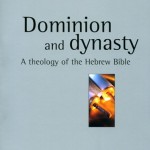 Dominion and Dynasty: A Study in Old Testament Theology by Stephen Dempster. Christian theologians rarely study the Old Testament in its final Hebrew canonical form, even though this was very likely the Bible used by Jesus and the early church. However, once read as a whole, the larger structure of the Hebrew Bible (Tanakh) provides a “wide-angle lens” through which its contents can be viewed.
Dominion and Dynasty: A Study in Old Testament Theology by Stephen Dempster. Christian theologians rarely study the Old Testament in its final Hebrew canonical form, even though this was very likely the Bible used by Jesus and the early church. However, once read as a whole, the larger structure of the Hebrew Bible (Tanakh) provides a “wide-angle lens” through which its contents can be viewed.
In this stimulating exposition, Stephen G. Dempster argues that, despite its undoubted literary diversity, the Hebrew Bible possesses a remarkable structural and conceptual unity. The various genres and books are placed within a comprehensive narrative framework which provides an overarching literary and historical context. The many texts contribute to this larger text, and find their meaning and significance within its story of “dominion and dynasty,” which ranges from Adam to the Son of Man to David, and to a coming Davidic king.
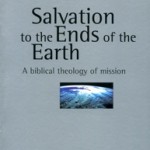 Salvation to the Ends of the Earth: A Biblical Theology of Mission by Andreas Kostenberger and Peter O’Brien. Few biblical topics are as important as mission. Mission is linked inextricably to humanity’s sinfulness and need for redemption, and to God’s provision of salvation in the person and work of Jesus Christ. This “good news” of salvation must be made known! The saving mission of Jesus constitutes the foundation for Christian mission, and the Christian gospel is its message. According to Andreas Köstenberger and Peter O’Brien, this significant theme has rarely been given its due attention in biblical theology.
Salvation to the Ends of the Earth: A Biblical Theology of Mission by Andreas Kostenberger and Peter O’Brien. Few biblical topics are as important as mission. Mission is linked inextricably to humanity’s sinfulness and need for redemption, and to God’s provision of salvation in the person and work of Jesus Christ. This “good news” of salvation must be made known! The saving mission of Jesus constitutes the foundation for Christian mission, and the Christian gospel is its message. According to Andreas Köstenberger and Peter O’Brien, this significant theme has rarely been given its due attention in biblical theology.
Motivated by their passion to see God’s mission carried out in today’s world, they offer a comprehensive study of the theme of mission. In Salvation to the Ends of the Earth they explore the entire sweep of biblical history, including the Old Testament, the second-temple period, each New Testament Gospel, Paul and his writings, and the General Epistles and Revelation.
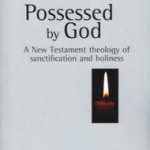 Possessed by God: A New Testament Theology of Sanctification and Holiness by David Peterson. David Peterson challenges the common assumption that the New Testament views sanctification as primarily a process. He argues that its emphasis falls upon sanctification as a definitive event, “God’s way of taking possession of us in Christ, setting us apart to belong to him and to fulfill his purpose for us.” Simply to identify sanctification with growth and holiness, he contends, obscures the emphasis and balance of New Testament teaching and creates unrealistic expectations. Throughout this study Peterson builds his case on the careful exegesis of relevant passages, with a keen eye for the pastoral implications of his findings.
Possessed by God: A New Testament Theology of Sanctification and Holiness by David Peterson. David Peterson challenges the common assumption that the New Testament views sanctification as primarily a process. He argues that its emphasis falls upon sanctification as a definitive event, “God’s way of taking possession of us in Christ, setting us apart to belong to him and to fulfill his purpose for us.” Simply to identify sanctification with growth and holiness, he contends, obscures the emphasis and balance of New Testament teaching and creates unrealistic expectations. Throughout this study Peterson builds his case on the careful exegesis of relevant passages, with a keen eye for the pastoral implications of his findings.
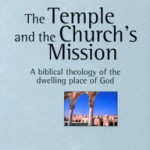 Temple and the Church’s Mission: Biblical Theology of the Dwelling Place of God by G.K. Beale. In this comprehensive study, G. K. Beale argues that the Old Testament tabernacle and temples were symbolically designed to point to the end-time reality that God’s presence, formerly limited to the Holy of Holies, would be extended throughout the cosmos. Hence, John’s vision in Revelation 21 is best understood as picturing the new heavens and earth as the eschatological temple.
Temple and the Church’s Mission: Biblical Theology of the Dwelling Place of God by G.K. Beale. In this comprehensive study, G. K. Beale argues that the Old Testament tabernacle and temples were symbolically designed to point to the end-time reality that God’s presence, formerly limited to the Holy of Holies, would be extended throughout the cosmos. Hence, John’s vision in Revelation 21 is best understood as picturing the new heavens and earth as the eschatological temple.
Beale’s stimulating exposition traces the theme of the tabernacle and temple across the Bible’s story-line, illuminating many texts and closely-related themes along the way. He shows how the significance and symbolism of the temple can be better understood in the context of ancient Near Eastern assumptions, and offers new insights into the meaning of the temple in both Old and New Testaments.
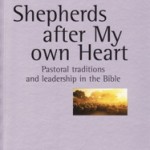 Shepherds After My Own Heart: Pastoral Traditions and Leadership in the Bible by Timothy Laniak. Most of Israel’s pastoral imagery is grounded in two traditions: Moses as God’s under-shepherd and David as shepherd-king. These traditions, explains author Timothy S. Laniak, provided prototypes for leaders that followed, and formed the background for the ministry of Jesus, the good shepherd. The pastoral role was central to the ongoing life of local churches in the Christian movement, and today’s pastors are still called to be shepherds after God’s own heart, to lead his people, living on the margins of settled society, to their eternal home.
Shepherds After My Own Heart: Pastoral Traditions and Leadership in the Bible by Timothy Laniak. Most of Israel’s pastoral imagery is grounded in two traditions: Moses as God’s under-shepherd and David as shepherd-king. These traditions, explains author Timothy S. Laniak, provided prototypes for leaders that followed, and formed the background for the ministry of Jesus, the good shepherd. The pastoral role was central to the ongoing life of local churches in the Christian movement, and today’s pastors are still called to be shepherds after God’s own heart, to lead his people, living on the margins of settled society, to their eternal home.
In this excellent study, Laniak draws on a wide range of Old and New Testament texts to develop the biblical theology of “shepherd” imagery, and concludes with some principles and implications for contemporary pastoral ministry. A wonderful resource for pastors, teachers and seminary students, as well as readers interested in the study of biblical imagery.
Click here to see previous entries in the “A Series Worth Serious Investment” series.
- All following descriptions are taken from the publisher. ↩





